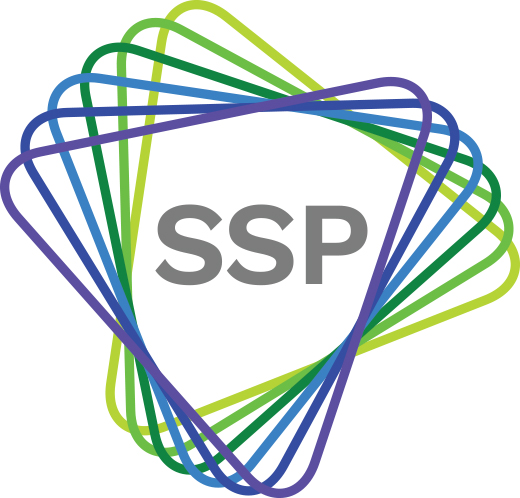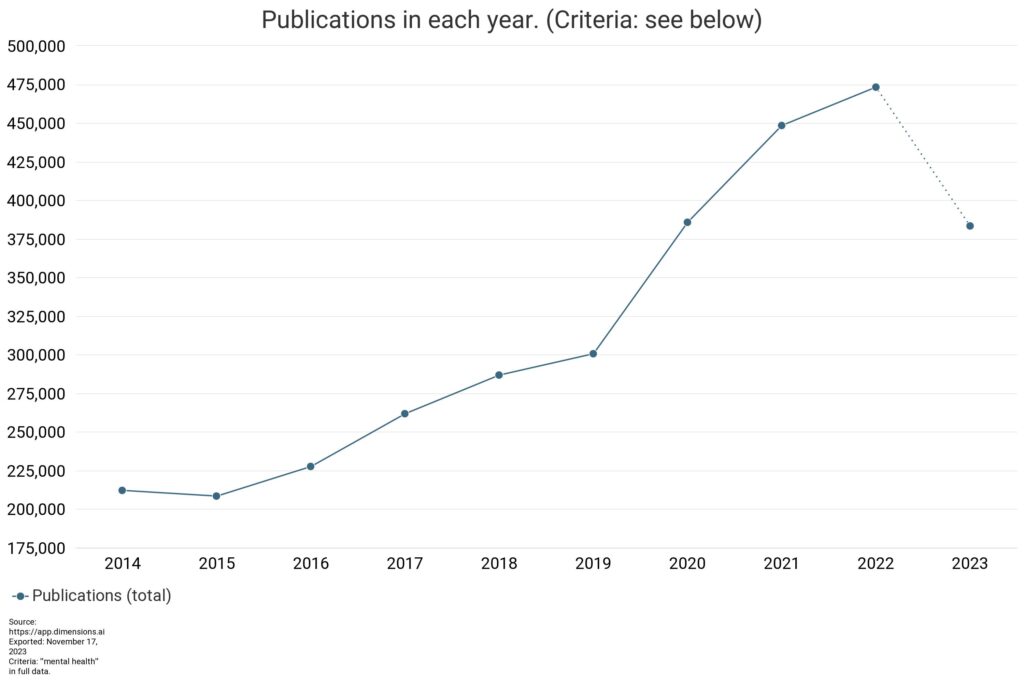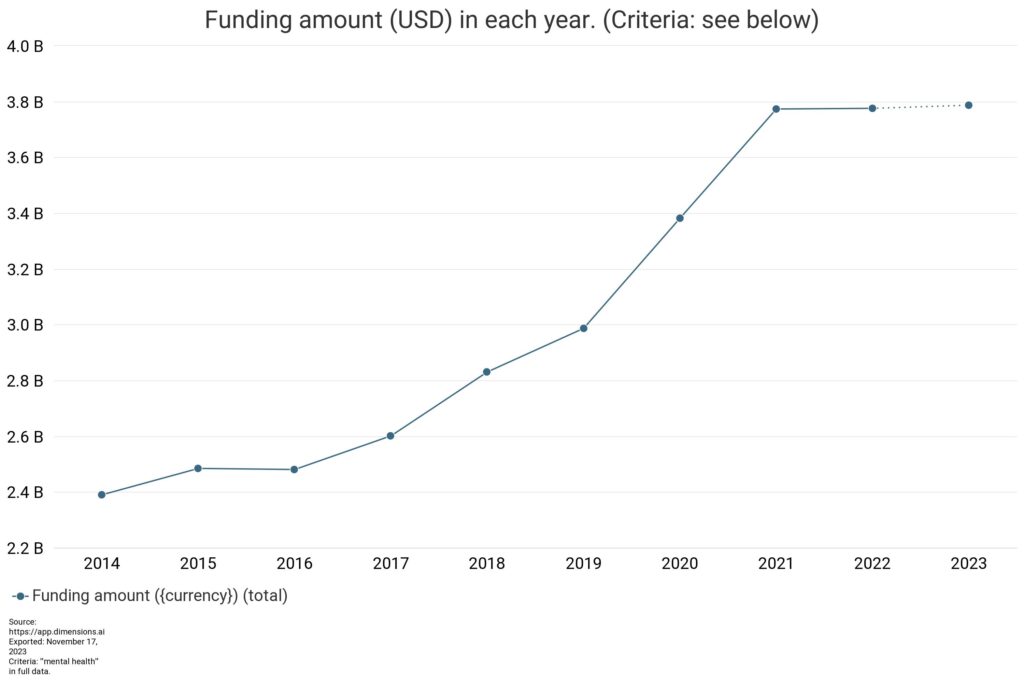Rounding out our month of weekly Mental Health Awareness Mondays posts on The Scholarly Kitchen, today we hear from some of the Past Presidents of the Society for Scholarly Publishing (SSP) serving on the Mental Health Task Force set up earlier this year by our current President, Randy Townsend. The Task Force has been meeting collectively and in smaller groups since July to brainstorm how SSP can and should support the mental health of our community members. Today, we’re sharing Past Presidents’ responses to the question: Why is it important for SSP to support the mental health of our members, especially around work-related issues?
As Randy said when he announced the Task Force: “I hope that [these initiatives] will serve to strengthen relationships, reinforce our core values, and offer threads to keep us actively connected. Please join the conversation, participate in the activities, and share your voice.” We echo his hopes and encourage you to use the comments section to let us know how you feel about this initiative. Thank you!
Lois Smith (President, 2010-2011)
SSP is dedicated to supporting scholarly communications professionals. Although the explicit goal of its programs and events is to ensure individuals’ success through educational and networking opportunities, I argue that SSP is already meeting the implicit goal of supporting members’ mental health. The more they know and the better their professional connections, the better they can do their jobs and fulfill their goals for advancement. Satisfaction from those achievements leads to improved well-being, which can manifest in one’s personal life as well.
Could the Society be doing more by, for instance, adding programs that focus on tools and techniques for coping with stress on the job? Absolutely. Aside from our existing fun events like runs/walks for charity, more could be offered that let members let off steam and stretch themselves in safe and enjoyable ways, like improv sessions. My many years in Toastmasters proved that gaining comfort (if not mastery) in public speaking improves interpersonal interactions in many areas of life, so occasional workshops in this area could be helpful.
The more SSP can do to support members’ mental health, the stronger the likelihood that each one will remain in field and the Society, and maybe even become part of the leadership team, building success on success for all of us.
Rick Anderson (President, 2016-2017)
While it’s essential that we avoid giving the impression that we can offer actual mental health care, I think it’s also essential that SSP leverage its power as a community to offer collegial and informal support to members who may be struggling with mental and emotional stresses connected to their jobs. Most – if not all – of us work in fields related to scholarly communication because we find the work fulfilling, and I suspect and hope that most of us are basically happy in our work. But the work can be stressful, at times nearly unbearably so, and the stressors can take a toll. Because SSP is a community of good people across a wide spectrum of professional orientation and experience, we members are well situated to watch out for each other and look for signs of struggle, offering encouragement, support, and solidarity as needed.
But in addition to those individual efforts, I think it’s important that SSP itself, as an organization, both be and be seen as a place in which members can be their authentic selves, including being as open as they wish to about the struggles they’re facing in their work. As an organization we need to send that message in a consistent and programmatic way, and as individual members we need to reinforce it by being allies to those who may be struggling.
October Ivins (President, 2008-2009)
This is a very personal question for me, and I’ve had to take some time to ponder how to respond. While I’ve been an active member of multiple professional associations, it is SSP that has supported me through both professional and personal challenges. The cordiality and concern offered by members and staff during committee and related volunteer activities is nourishing. As a society that supports individuals, it seems both a natural and a necessary progression for SSP to formally support the mental health of our members. While work-related issues can have a significant impact on our mental health, I believe that mental health challenges in our personal lives impact our ability to perform in every aspect of our lives, including work.
My own mental health issues have changed over time and seem ordinary to me. I sought help from my employer’s organization and my primary care physician from time to time, leading to multiple sequences of therapy, which I now consider to have been essential to my well-being and whatever I was able to achieve.
Personally, I’ve lost family members and friends to cancer, suicide and accidents, and experienced infertility and divorce. But the most searing experience was a 25-year struggle to help my sister address tobacco and alcohol addiction. I paid for her therapy, made deals about her behavior, urged medical checkups, paid for doctor visits, covered rent, and more. Ultimately, she collapsed and was taken to an emergency room and was diagnosed with lung cancer. She died three months later, and I still live with regret that I couldn’t or didn’t do more. First on the list is to investigate AlAnon.
Miranda Walker (President, 2023-2024)
A reality of scholarly publishing is that many of us dedicate our careers to supporting our employers’ missions, be that curing a disease, or educating students, or making a profit. Our personal professional values are often worlds apart from those of the organizations we support. But, SSP is our professional society. Its mission, goals, and values reflect all of us who identify as scholarly publishing professionals no matter what appears on our LinkedIn Page. It’s a place we look to for innovation in times of change and comfort in times of turmoil. It’s also where we build communities based on our shared professional experiences. We can turn to each other to talk about our anxieties and stressors without having to define the acronyms that easily roll off our tongues.
When it comes to mental health, so many of our triggers start at work. We then take home complex stories scattered with letters like O-S-T-P-D-O-I-E-I-C-O-A-A-P-C. Our loved ones may try to understand, but sometimes one just needs to turn to a neutral person who can help to think through a challenging situation before it escalates. It is important that we don’t take for granted that everyone caught in a challenging situation at work knows where to turn for support. This is why I feel it is important that SSP support the mental health of our members. We need to let everyone know that there are resources out there and within the SSP community, there are people who will listen, and even better, relate.
Bill Kasdorf (President, 2001-2002)
I’ve been advocating for accessibility for at least two decades, and for most of that time, it was the sort of issue that was generally acknowledged but mostly ignored. Nobody would dispute that it was important, but few did anything about it. It was only in the last few years that there has been something of a watershed, a turning point: now every publisher I know is not just paying attention to it, but actively working on it. And people are realizing that there is not just one kind of accessibility: there are lots of disabilities that require different strategies.
It strikes me that the issue of mental health is similar. Nobody would dismiss it as unimportant, but most people haven’t thought much about it, or if they did, they didn’t think they could do anything about it. Maybe we’re seeing the beginning of the same kind of watershed on mental health. Organizations like SSP — and the organizations that are our members — can do something about it. And it’s not one-size-fits-all. That’s why I think this SSP Mental Health Task Force is so important. Our first meeting was a revelation: virtually every task force member was able to speak of some personal experience, or the experience of a friend or loved one, struggling or having struggled with mental health in some way. Like accessibility, it has been hiding in plain sight. Many thanks to Randy Townsend for shining a light on it!
Carol Anne Meyer (President, 2012-2013)
As a young manager in my first job in scholarly communications, I had an employee who was neurodivergent. I didn’t know that term at the time. This person was highly intelligent, but their colleagues had trouble getting along with them. I wasn’t much help.
Many years later, another highly valued employee had a difficult situation with an immediate family member whose mental health suffered in a way that affected their whole family and their work life. I wasn’t much help.
My own family history includes individuals with diagnoses of schizophrenia, major depression, ADHD, substance abuse, and autism. These relationships have sometimes interfered with my ability to be productive. I haven’t asked for help.
I know I’m not alone. Based on conversations I’ve had with others in the SSP community and at work, I’m learning it may be more common than not for us to be affected by mental health problems.
When The Scholarly Kitchen began to shed a light on diversity, equity, inclusion, and disability issues a few years ago, it was the first step towards changing our culture to one of acceptance and empathy. Awareness precedes action. Mental health is another subject that is seldom discussed openly.
I am hopeful that by acknowledging mental health issues, today’s managers, and tomorrow’s, will have more knowledge and better tools to handle mental health situations than I did. People have mental health challenges. Families have mental health challenges. Work groups have mental health challenges. Let’s work together to make it easier for all of us to navigate those challenges.
Adrian Stanley (President, 2018-2019)
Many thanks to current SSP President Randy Townsend for prioritizing mental health awareness across our scholarly communications industry; this is a topic in much need of further discussion, understanding, and support. In the fast-paced world we work in, where the pursuit of knowledge (and often success and profit) is relentless and the pressure to publish is unyielding, the state of mental health among academics, publishers, librarians, and vendors is increasingly garnering attention.
It’s clear from my own personal experience that managers, leaders, colleagues, and individuals are being presented with an array of symptoms and signals. I suspect even the best HR departments would acknowledge there’s much more that could be done to support mental health and well-being in the workplace. Depression, anxiety, and burnout are a few examples I have come across, but there’s also a broader spectrum of issues including autism, Aspergers, and addiction. There are a multitude of ways to support and help understand the unique challenges an individual faces. I certainly believe there’s much room for a greater awareness and understanding of these issues, even more so now post-Covid.
Acknowledging and addressing the mental health crisis in scholarly communications, and the bigger world ecosystem is imperative. Institutions and publishers must prioritize the well-being of their employees, fostering an environment that promotes a healthy work-life balance and providing strong support systems. Additionally, normalizing conversations around mental health in both workplace and family circles can help destigmatize seeking help, and encourage individuals to prioritize their mental well-being without fear of judgment.
Looking at the data, based on the Dimensions database, a simple ‘mental health’ keyword search, shows that there’s been a dramatic growth in both publications (475,000 in 2022), and research grants awarded ($3.8b in 2022). While this is good news, it’s also concerning that there’s still so much we don’t yet know and fully understand.
Source Dimensions database, Digital Science, trends in mental health publications and research grants.
Having worked for and with one of the leading mental health journals in its field, JMIR Mental Health, I very much appreciate the hard work and dedication of editors, authors, peer reviewers, editorial staff, and researchers alike, all of whom contribute to the greater understanding of mental health issues. Taking this research, and translating it into practical findings will be equally important for everyone impacted by mental health — those on the front line of support, and those who are suffering.
On a personal note, and aiming to end with positive thoughts, for myself I find a walk in nature with our dog can refresh and re-energize me after a long day at work. Knowing what helps you relax and unwind is important in today’s fast-paced world. Take care of yourself, so you can also help others!
Alice Meadows (President, 2022-2023)
Like so many aspects of diversity, equity, inclusion, and accessibility (DEIA), supporting good mental health and wellbeing makes sense from both an ethical and a business perspective. Likewise, as an industry organization, centered around our core values (community, inclusivity, adaptability, integrity), it also makes sense for SSP to support the mental health of our members, helping equip everyone to participate positively and fully in the scholarly publishing — and wider scholarly communications — community.
SSP can’t (and shouldn’t) seek to provide professional mental health services, although some of our organizational members can provide sound advice, such as the American Psychiatric Association’s tips from their Center for Workplace Mental Health. We can, however, provide an inclusive and welcoming community where members feel safe and supported — including by sharing our own personal experiences, as Holly Koppel and Juanita Goossens-Roach did so powerfully in their posts earlier this month; by educating ourselves about mental health issues; and by learning how to support better mental health for ourselves and our colleagues.
I’ve already learned such a lot from the discussions Randy has been leading at our Task Force meetings. Every single one of the Past Presidents has been impacted in some way by mental health issues, whether we’ve experienced them directly ourselves, supported family members or colleagues experiencing or impacted by them, or (in my case, and I’m sure many others’) all the above. Knowing that, as well as being able to turn to my SSP friends, I can also turn to the organization I think of as my professional home for help navigating these challenges is enormously reassuring. I hope and believe that our collective work to address mental health issues will have an impact far beyond “just” our membership and “just” Randy’s year as SSP President.





